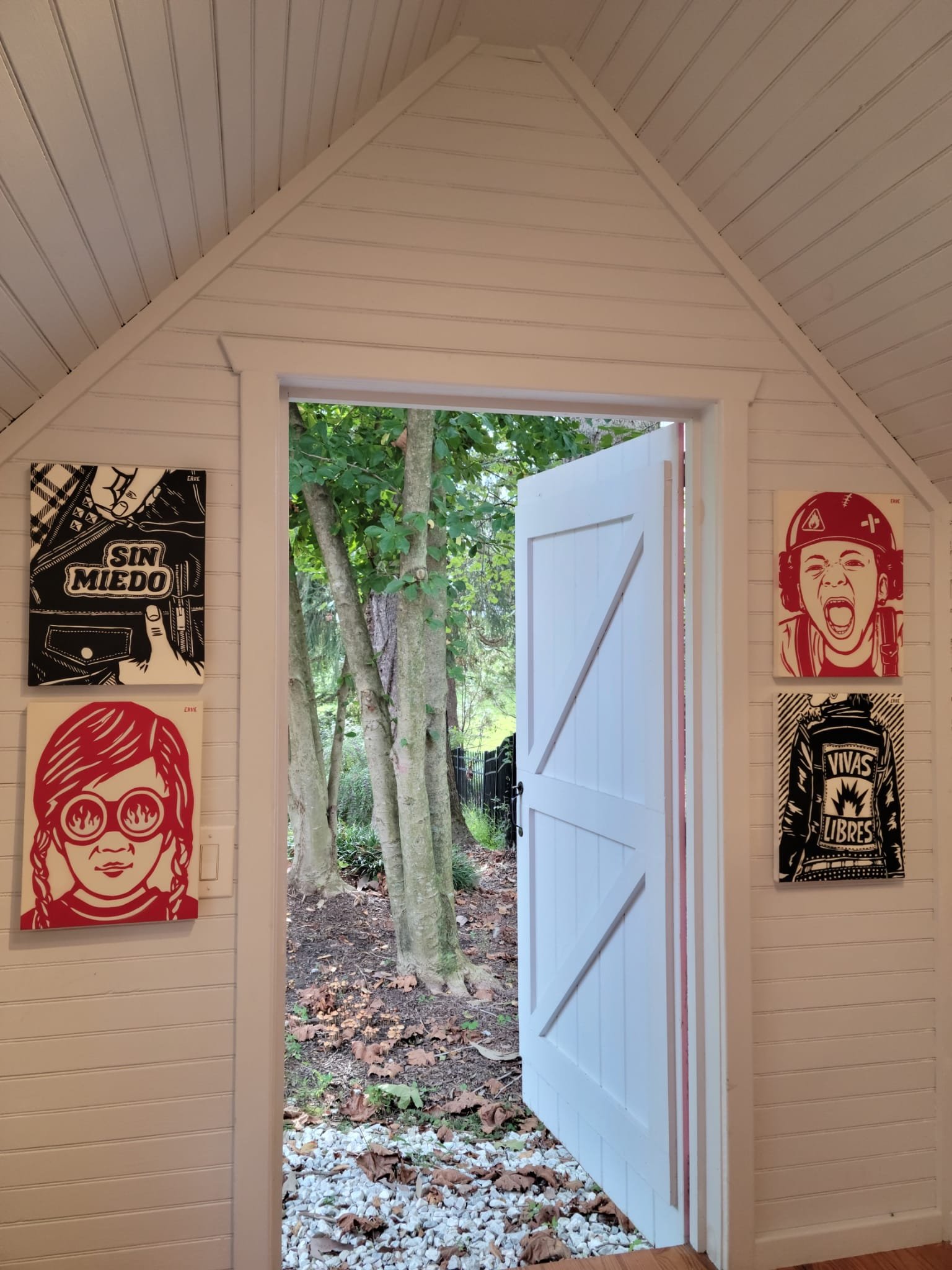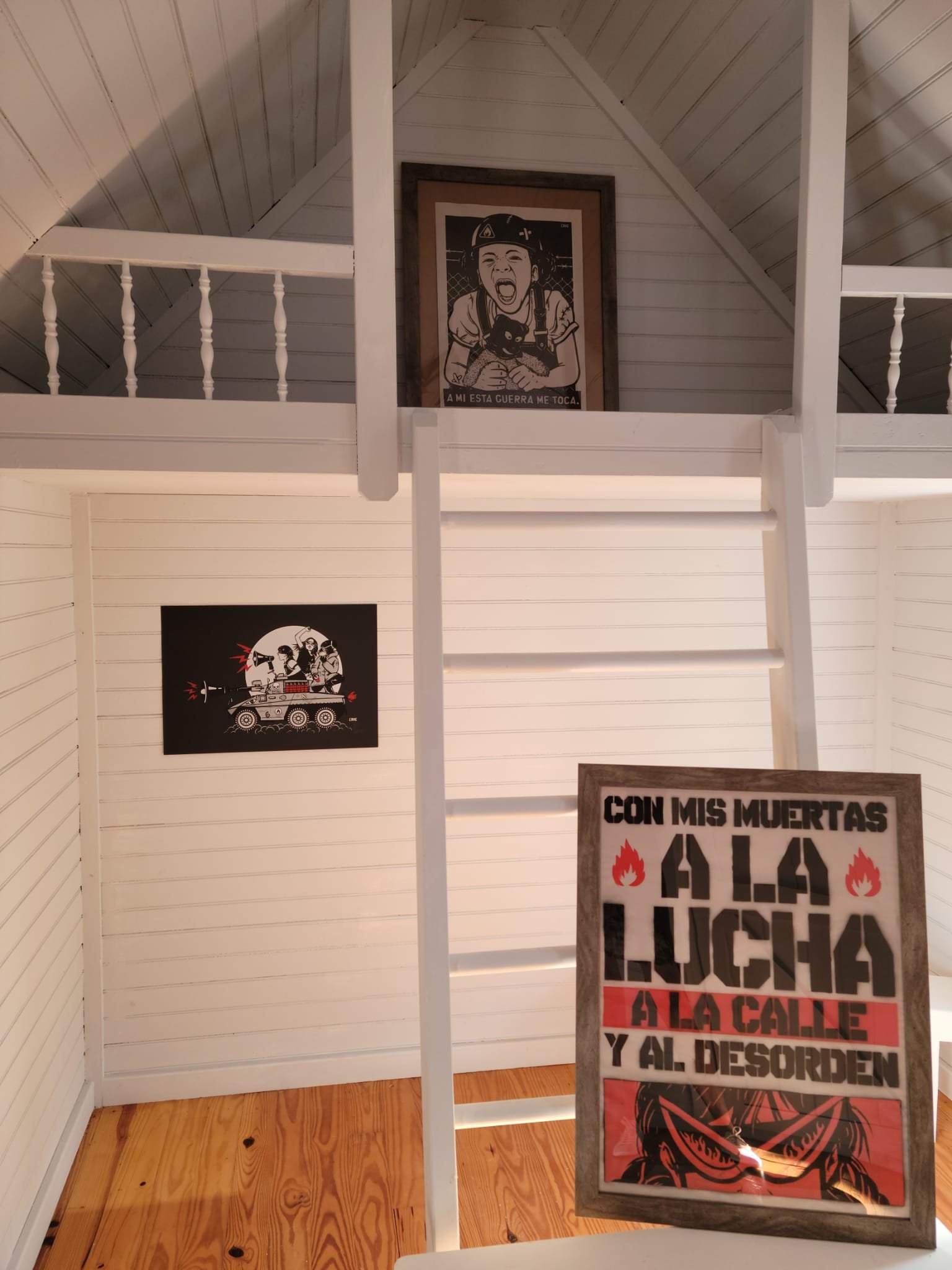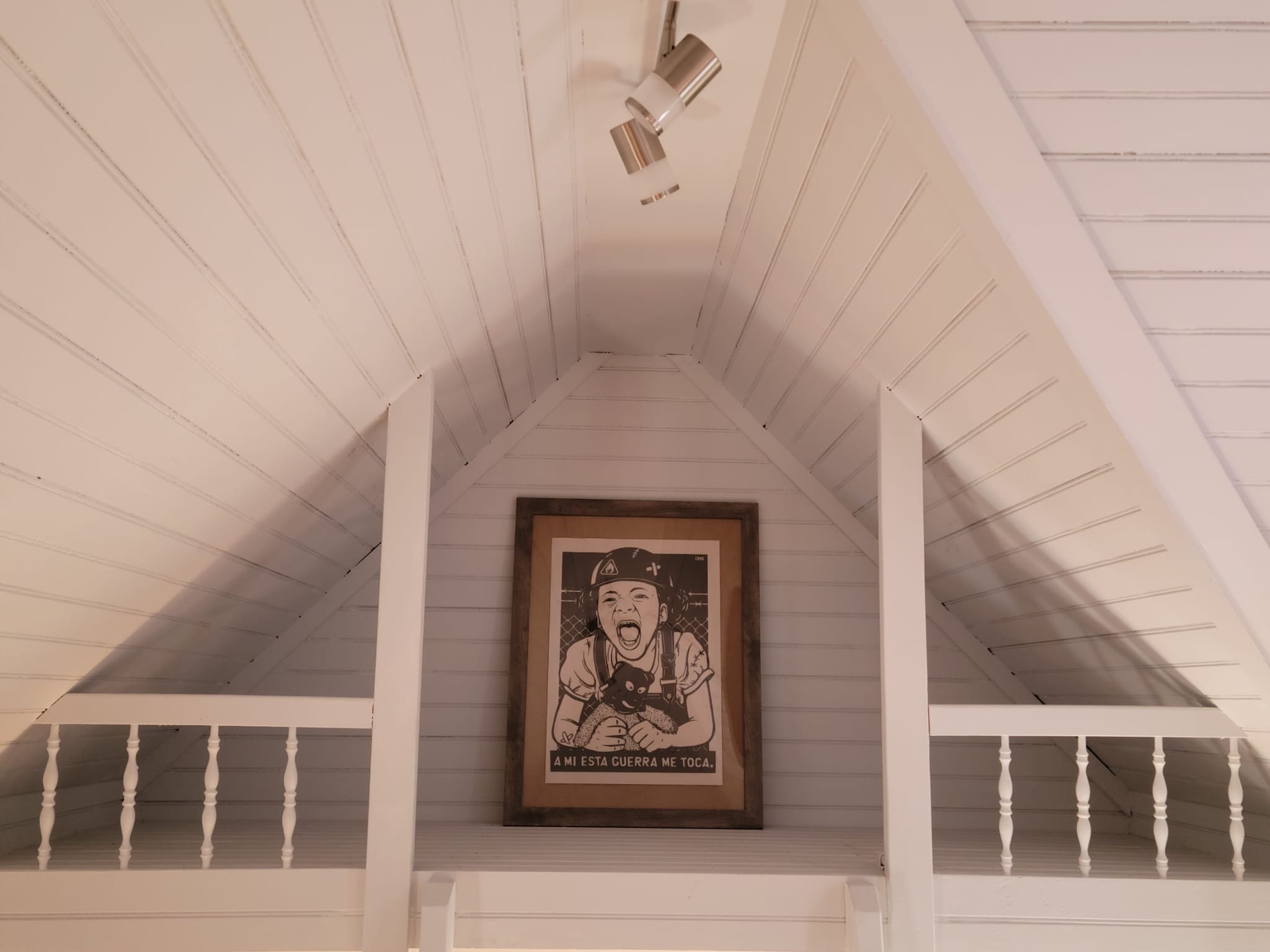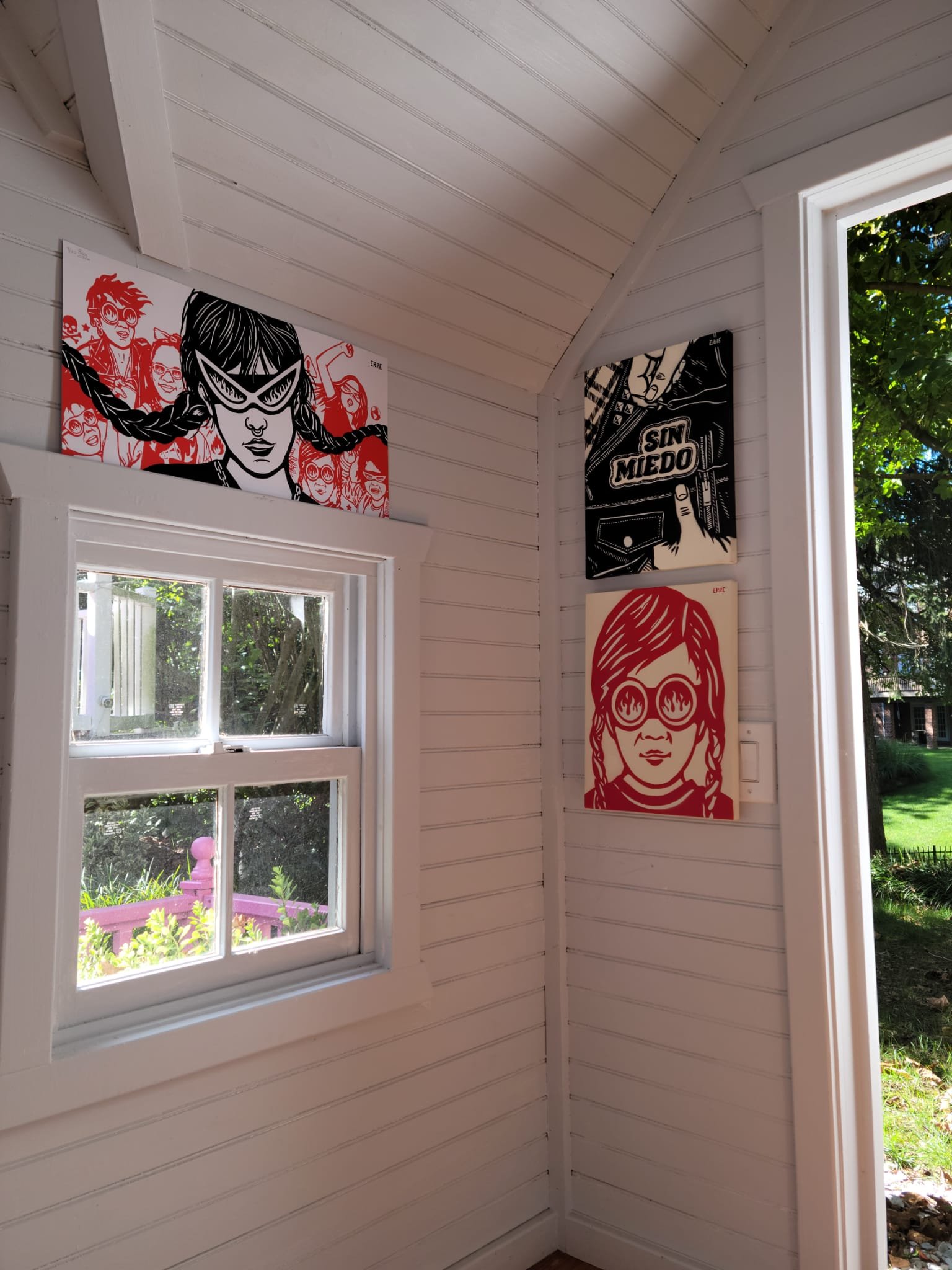ERRE. Until they hear us
Hasta que nos escuchen
La Morada. RoFa Projects. Potomac. MD
Art Works
Hasta que nos escuchen
Until they hear us
Very recently, I was in Bogotá, Colombia and for a good part of my tour of the city, I felt that the walls were filled with brushstrokes, stencils and sprays to say “Enough!” to inequality, injustice, abuse of power, machismo and a failed heteropatriarchal system. A vibrant sensation of urban artists strengthening and making clear their active participation in society. All of these artists doing what we like to do; that is, putting aesthetics at the service of ethics.
Within this group that shows us a story in motion, with daily fights, with diversity and acceptance, I got to know the work of ERRE.
ERRE began to paint in Zipaquirá, a municipality just under an hour from Bogotá, but soon the city was too small for her; it became very conservative and she moved to Bogotá. Her nights out to graffiti taught her to face a more hostile city where she had to get rid of the men who bothered her when she went out to paint alone at night. She has to endure police abuse and macho comments.
Many of her messages come from punk: studded jackets, crested animals, women with spray cans or tape recorders ready to make a mess. ERRE likes that her name is neutral in terms of the gender created, which does not refute the idea that many have and that she argues with against those who say that ERRE is a man.
Independent, empowered and internationally recognized, she is already a reference when we think of art as a transforming tool and social denunciation. ERRE penetrates the social fabric, she infiltrates into the corners and folds of the city to dialogue with passersby, to give voice to many problems that are not discussed as much as they should be.
ERRE shows us that the street can be the largest open museum, the one that allows the involvement of citizens, the common space, the space away from the formal and academic criticism. An open museum of complaint and contact, without red carpets. An intimate and necessary contact with the reality of the inhabitants who interact with those walls full of emotion and political positioning. An exercise of citizenship.
There are many walls made by women, but when people pass in front of them, they think that they were made by men. ERRE is one of these women, walking for the same cause, painting for the future, for rights, for equity...until they hear us.
Gabriela Rosso



















